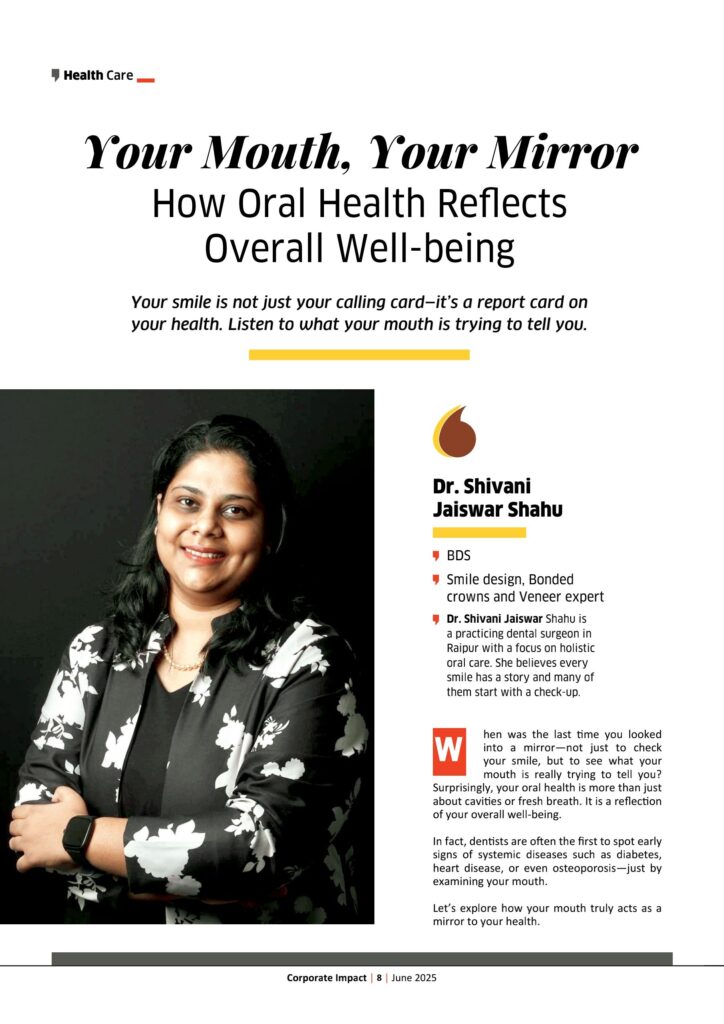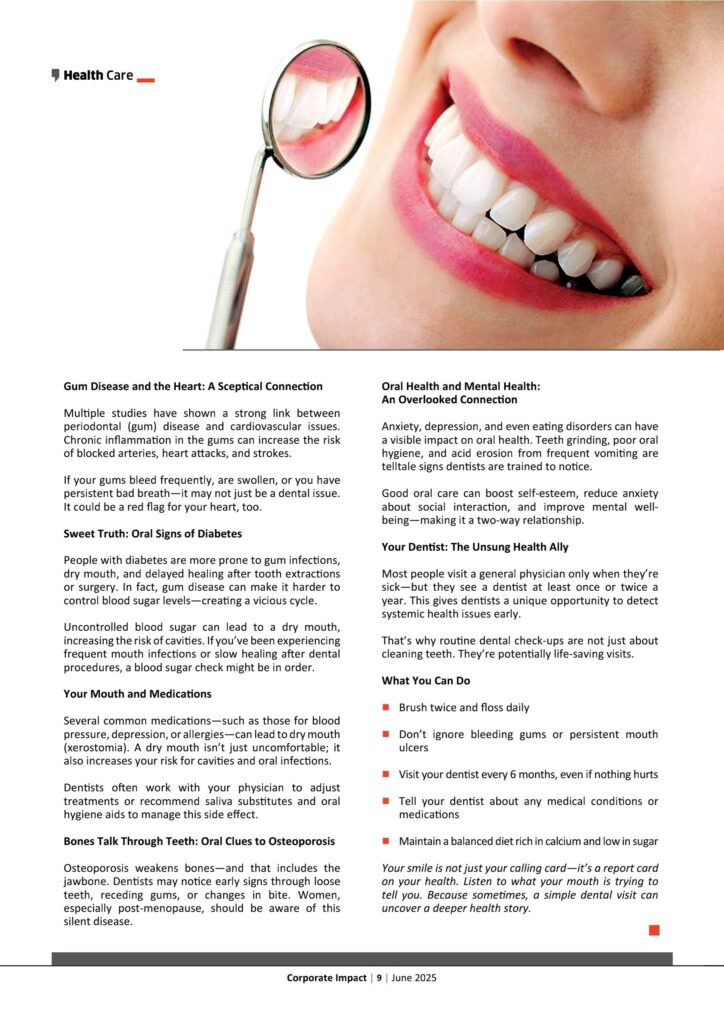Your smile is not just your calling card—it’s a report card on your health. Listen to what your mouth is trying to tell you.
Dr.Shivani Jaiswar Shahu
BDS
Smile design, Bonded crowns and Veneer expert
Dr. Shivani Jaiswar Shahu is a practicing dental surgeon in Raipur with a focus on holistic oral care. She believes every smile has a story and many of them start with a check-up.
When was the last time you looked into a mirror—not just to check your smile, but to see what your mouth is really trying to tell you? Surprisingly, your oral health is more than just about cavities or fresh breath. It is a reflection of your overall well-being.
In fact, dentists are often the first to spot early signs of systemic diseases such as diabetes, heart disease, or even osteoporosis—just by examining your mouth.

Let’s explore how your mouth truly acts as a mirror to your health.
Gum Disease and the Heart: A Sceptical Connection
Multiple studies have shown a strong link between periodontal (gum) disease and cardiovascular issues. Chronic inflammation in the gums can increase the risk of blocked arteries, heart attacks, and strokes.
If your gums bleed frequently, are swollen, or you have persistent bad breath—it may not just be a dental issue. It could be a red flag for your heart, too.
Sweet Truth: Oral Signs of Diabetes
People with diabetes are more prone to gum infections, dry mouth, and delayed healing after tooth extractions or surgery. In fact, gum disease can make it harder to control blood sugar levels—creating a vicious cycle.
Uncontrolled blood sugar can lead to a dry mouth, increasing the risk of cavities. If you’ve been experiencing frequent mouth infections or slow healing after dental procedures, a blood sugar check might be in order.
Your Mouth and Medications
Several common medications—such as those for blood pressure, depression, or allergies—can lead to dry mouth (xerostomia). A dry mouth isn’t just uncomfortable; it also increases your risk for cavities and oral infections.
Dentists often work with your physician to adjust treatments or recommend saliva substitutes and oral hygiene aids to manage this side effect.

Bones Talk Through Teeth: Oral Clues to Osteoporosis
Osteoporosis weakens bones—and that includes the jawbone. Dentists may notice early signs through loose teeth, receding gums, or changes in bite. Women, especially post-menopause, should be aware of this silent disease.
Oral Health and Mental Health:
An Overlooked Connection
Anxiety, depression, and even eating disorders can have a visible impact on oral health. Teeth grinding, poor oral hygiene, and acid erosion from frequent vomiting are telltale signs dentists are trained to notice.
Good oral care can boost self-esteem, reduce anxiety about social interaction, and improve mental well-being—making it a two-way relationship.
Your Dentist: The Unsung Health Ally
Most people visit a general physician only when they’re sick—but they see a dentist at least once or twice a year. This gives dentists a unique opportunity to detect systemic health issues early.
That’s why routine dental check-ups are not just about cleaning teeth. They’re potentially life-saving visits.
What You Can Do
Brush twice and floss daily
Don’t ignore bleeding gums or persistent mouth ulcers
Visit your dentist every 6 months, even if nothing hurts
Tell your dentist about any medical conditions or medications
Maintain a balanced diet rich in calcium and low in sugar
Your smile is not just your calling card—it’s a report card on your health. Listen to what your mouth is trying to tell you. Because sometimes, a simple dental visit can uncover a deeper health story.














